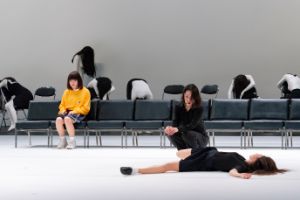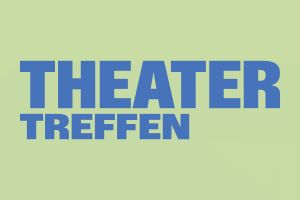Musikfest Berlin
Performing Arts Season
Thanks for 2025/26 and Look Out for 2026/27
We would like to thank all artists, everyone involved and you, our audience, for a great Performing Arts Season 2025/26 full of moving moments! We are already in the midst of preparations for the next Season, which will present a new panorama of international dance, theatre and performance productions at Haus der Berliner Festspiele and the Gropius Bau from October 2026 to January 2027. Initial information on the programme will be available at the end of February.
In the Media Library
In interviews Eun-Me Ahn, Akram Khan and Ligia Lewis discuss their artistic practice and the creation of their recent works, which were presented during the Performing Arts Season 2025/26. Essays and a lecture also offer insights into the significance of dolls in Gisèle Vienne’s work, as well as into the rehearsal process for Thorsten Lensing’s Dancing Idiots.

Impressions
About Performing Arts Season
Since 2023, the Berliner Festspiele’s Performing Arts Season has been presenting a range of outstanding international dance, theatre and performance productions at the Haus der Berliner Festspiele and Gropius Bau during the autumn and winter months. Some of the works shown are co-produced by the Berliner Festspiele or specially produced in Berlin.
























